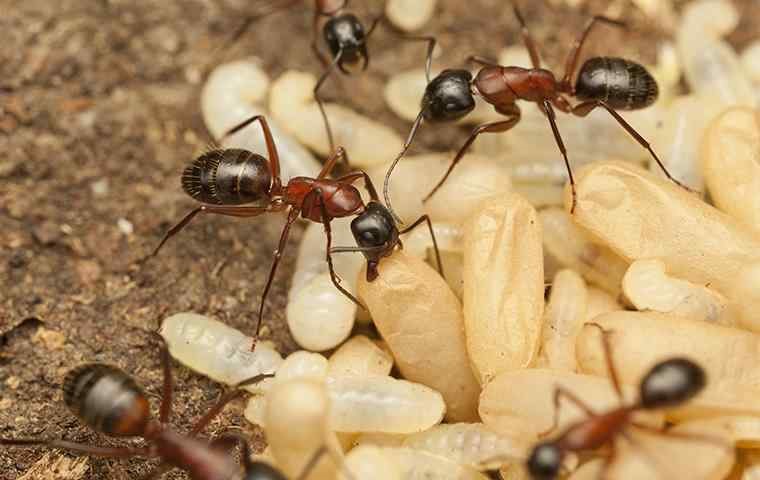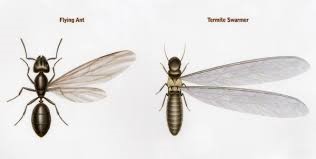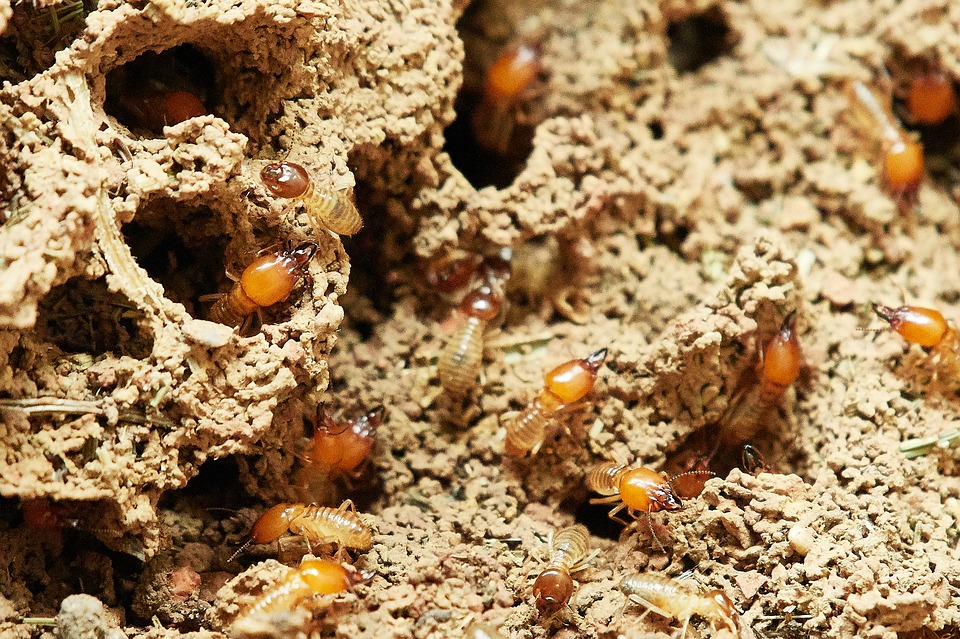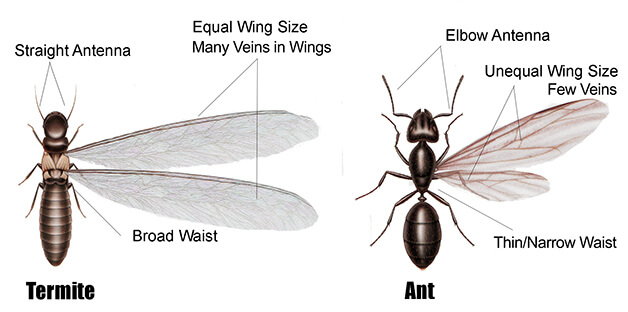Carpenter Ants vs. Termites
At a distance carpenter ants and termites look very similar to each other. However, on closer inspection, you can make out the details that separate the two species.
If you correctly identify the swarm, you will have a better idea whether you need carpenter ant control or termite control.
Waist
One way to spot the difference between carpenter ants vs. termites is by looking at the area between the thorax and the abdomen.
Carpenter ants have slender waists and bulbous abdomens. Conversely, termites have broad waists with almost no separate at all. This gives them a wider-looking body in comparison to carpenter ants.
Antennae

Another way to determine carpenter ants vs. termites is by observing the antennae.
Carpenter ants have two antennae that bend in an almost 90-degree angle. However, the antennae on termites curve slightly and extend straight out from its head.
Wings

The wings are another way to determine the difference between carpenter ants and termites. While both termites and carpenter ants have four wings, termites’ wings are longer than their bodies. The wings of termites are also equal in size and shape. Carpenter ants, on the other hand, have short hind wings and long fore wings.
Physical Damage
Carpenter ants prefer wood that has been softened by water damage. However, they are more than capable of chewing through sound wood to establish their galleries and tunnel systems. Generally, this damage is inside the wood, but these ants can also chew on external, exposed wood. Visual traits of damage caused by carpenter ants may appear as wood that looks like it has been scraped or chipped, as well as sawdust stuck to the wall or in a pile underneath kick out holes.
Conversely, termites feed on any type of wood but are drawn to water-damaged wood. This is partly due to their need for moisture. Termites perform most of their word on the inside of wood, unless they feed near moist ground or in a humid shaded area. Termite damage often looks like water damage: bulging walls, sagging floors, dipping ceilings and bubbling wallpaper.
Other Differences

Other differences between carpenter ants vs. termites include the following:
- Termites eat wood, whereas carpenter ants burrow and build nests in wood.
- Worker ants have a reddish, darker appearance in comparison to the transparent or cream-color of termite workers.
- Carpenter ants leave behind sawdust as they burrow in ceilings, decks and indoor cracks.
- Termites cause wooden timbers to weaken, crack and crumble over time.
These are just a few of the differences between carpenter ants vs. termites. Don’t let the swarm scare you away this spring. Contact City Pest Control for more information about how our termite exterminators and carpenter ant exterminators can eliminate infestations and protect your home and property.


